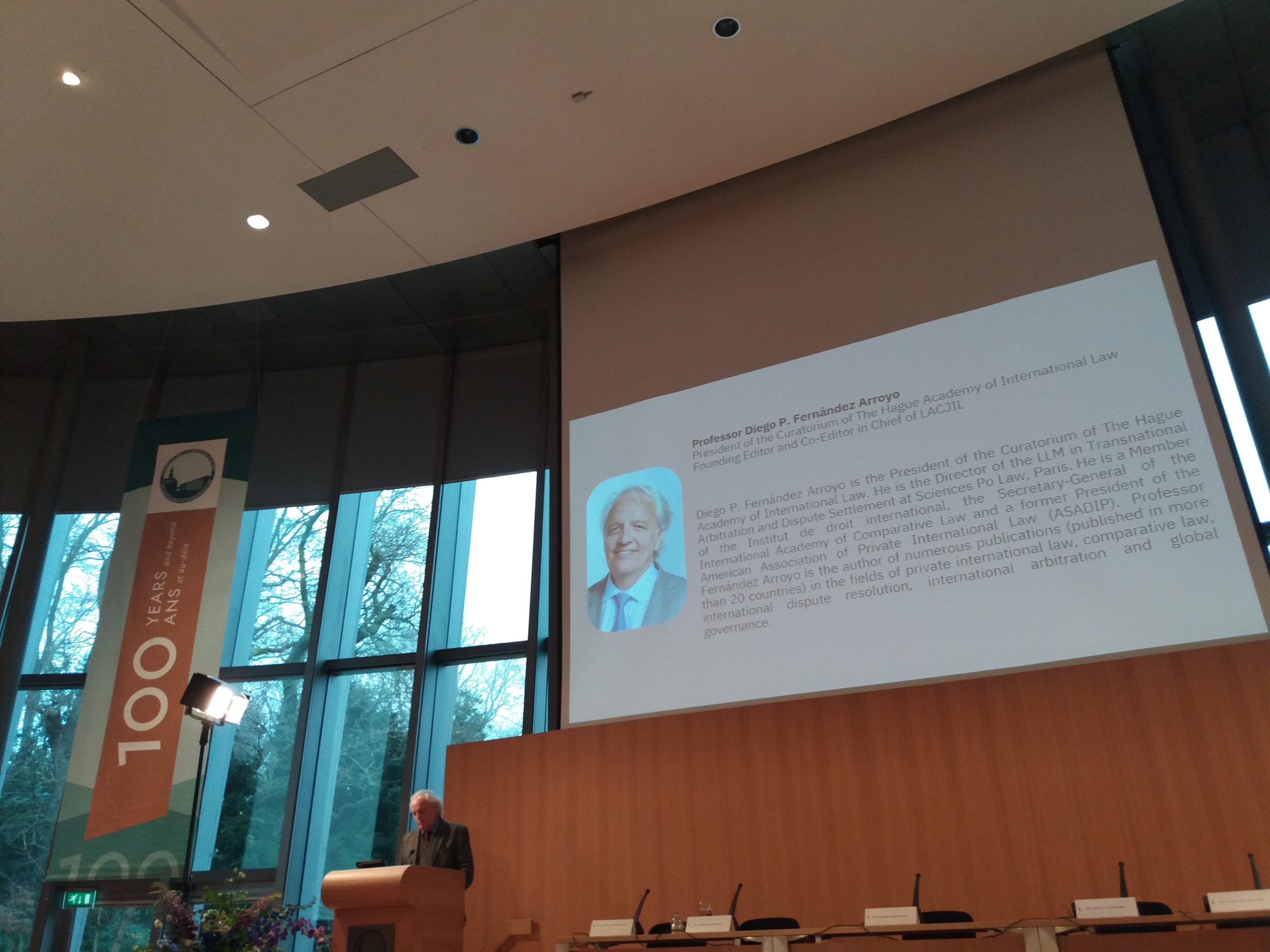Views
China Adopts Restrictive Theory of Foreign State Immunity
Written by Bill Dodge, the John D. Ayer Chair in Business Law and Martin Luther King Jr. Professor of Law at UC Davis School of Law.
On September 1, 2023, the Standing Committee of the National People’s Congress promulgated the Foreign State Immunity Law of the People’s Republic of China (FSIL) (English translation here). When the law enters into force on January 1, 2024, China will join those countries—a clear majority—that have adopted the restrictive theory of foreign state immunity. For the law of state immunity, this move is particularly significant because China had been the most important adherent to the rival, absolute theory of foreign state immunity.
In two prior posts (here and here), I discussed a draft of the FSIL (English translation here). In this post I analyze the final version of the law, noting some of its key provision and identifying changes from the draft, some of which address issues that I had identified. I also explain why analysts who see China’s new law as a form of “Wolf Warrior Diplomacy” are mistaken. Contrary to some suggestions, the FSIL will not allow China to sue the United States over U.S. export controls on computer chips or potential restrictions on Tiktok. Rather, the FSIL is properly viewed as a step towards joining the international community on an important question of international law. Read more
“Quasi” Anti-Suit Injunctions and Public Policy under Brussels Regime
THE CJEU: “QUASI” ANTI-SUIT INJUNCTION JUDGMENTS ARE AGAINST PUBLIC POLICY UNDER BRUSSELS REGIME
This post is written by Mykolas Kirkutis, a lecturer and PhD student of law at Mykolas Romeris University and visiting researcher at Rotterdam Erasmus School of Law, Erasmus University Rotterdam (EU Civil Justice group).
The Court of Justice of European Union (CJEU) on 7 of September 2023 in its newest case Charles Taylor Adjusting Limited, FD v Starlight Shipping Company, Overseas Marine Enterprises Inc. (case No. C?590/21) 2023 rendered a new preliminary ruling related to a non-recognition of “Quasi” anti-suit injunctions’ judgment under public policy ground of Brussels regime. This case is important because of two aspects. Firstly, CJEU clarified the main elements of “Quasi” anti-suit injunctions’ judgments. Secondly, Court stated what impact such judgments have for mutual trust in EU and if it can be safeguarded by public policy ground.
International high-tech surrogacy and legal developments in the Netherlands
This blogpost is an edited version of this blogpost written in Dutch by Stichting IJI (The Hague Institute for private international law and foreign law). We thought it was interesting to also bring it to the attention of the international readership of this blog.
Introduction
In the Netherlands, international high-tech surrogacy is a hot topic, resulting in interesting legal developments. Recently, a Dutch District Court dealt with a case on the recognition of US court decisions on legal parenthood over children born from a high-tech surrogacy trajectory in the US, providing many private international law insights on how to assess such request for recognition. Furthermore, on July 4 a bill was proposed that encloses several private international law provisions. This blogpost briefly highlights both developments.
News
Virtual Workshop (in English) on February 4: Pietro Franzina on “EU Private International Law at a Time of ‘Broken Multilateralism’ and Growing Geo-Political Tensions”

On Tuesday, February 4, 2025, the Hamburg Max Planck Institute will host its monthly virtual workshop Current Research in Private International Law at 11:00 a.m. – 12:30 p.m. (CET). Professor Pietro Franzina (Catholic University of the Sacred Heart) will speak, in English, about the topic
“EU Private International Law at a Time of ‘Broken Multilateralism’ and Growing Geo-Political Tensions”
Multilateralism is in crisis. The role of world organisations in international politics and law-making is increasingly being questioned, as some key actors in the global arena no longer consider cooperation and collective action the best way to address common concerns. While multilateralism is not obsolete, let alone ‘dead’, as some claim, there is a growing consensus that current governance schemes need profound reconsideration. The EU, multilateralism’s staunchest defender, is especially exposed to these developments. While the evolution of multilateralism is set to affect all areas of international cooperation, each field has, arguably, its specificities. What features does cooperation in the field of private international law display in this regard? How can the crisis of multilateralism influence the way in which the EU deals with judicial cooperation, be it through its legislation, in the relations with its neighbours and at the global level? What structural changes are under way in global fora, such as the HCCH, and what is their impact on the EU’s own agenda and methods of work?
The presentation will be followed by open discussion. All are welcome. More information and sign-up here.
If you want to be invited to these events in the future, please write to veranstaltungen@mpipriv.de.
Out now: Buxbaum, “Extraterritoriality in Comparative Perspective” (Ius Comparatum)
In an increasingly interconnected world, the application of laws by States beyond their territorial borders is an everyday reality. Yet, almost a century after the (still) leading findings by the PCIJ in the Case of the S.S. “Lotus”, the details of the concept of “extraterritoriality” remain elusive, and one can easily get lost in the multitude of national practices, ranging from “presumptions against extraterritoriality” to be found mostly in federal systems (mostly for sub-units) to “effects doctrines” and the like in certain areas of law such as e.g. (early) in Germany, (later) in the EU’s competition law and today many other jurisdictions, in particular in Asia.
Given this complexity, this latest publication of the Ius Comparatum Series on “Extraterritoriality in Comparative Perspective” edited by Hannah L. Buxbaum offers a great deal of valuable guidance and insights. Featuring the reports from the most recent IACL/AIDC General Congress in Asunción, the volume provides the reader with unique insights by renowned legal scholars into the practices of 14 national jurisdictions (inter alia China, Germany, Japan, Korea, UK, U.S.) and the the European Union (EU). As is explained in the preface to the book:
Much of the vast scholarly literature on extraterritoriality approaches the topic from the outside in, assessing the extraterritorial projection of state law from the perspective of international law and the constraints it places on state authority. The goal of this project is to approach the topic from the inside out. Considering a range of legal systems, the authors investigate the geographic scope that states claim for their own laws, and the mechanisms by which states translate and locally implement principles of international jurisdictional law.
The Latin American and Caribbean Journal of International Law (LACJIL) has been launched

Today the Latin American and Caribbean Journal of International Law (LACJIL) was launched at the auditorium of the Hague Academy of the Peace Palace. Among the speakers were Prof. Diego Fernández Arroyo, president of the curatorium of the Hague Academy, and H.E. Leonardo Nemer Caldeira Brant, judge of the International Court of Justice. In addition, a very interesting panel was moderated by the Ambassador of Guatemala to the Kingdom of the Netherlands H.E. Ana Cristina Rodríguez Pineda. The panel was composed of the judge of the International Criminal Court H.E Althea Alexis-Windsor, the Ambassador of Colombia to the Kingdom of the Netherlands H.E. Carolina Olarte Bácares, the Ambassador of Argentina to the Kingdom of the Netherlands H.E. Mario J. A. Oyarzábal and the president of ASADIP Prof. Verónica Ruiz Abou-Nigm. The purpose of the panel was to discuss the recent legal developments in Latin America and the Caribbean, which included the ASADIP principles on transnational access to Justice (TRANSJUS). Read more




